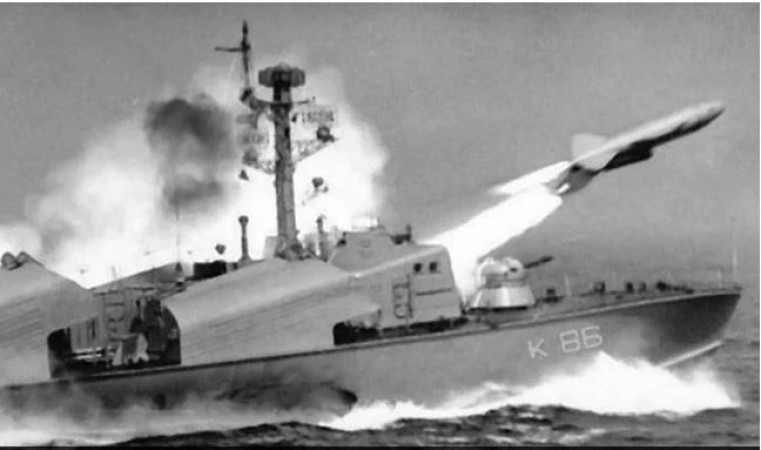
New Delhi: Naval history often echoes with tales of valor and strategic brilliance, and one such chapter is etched in the annals of India's maritime legacy – Operation Trident. This daring naval offensive, executed during the Indo-Pak War of 1971, marked a turning point in naval warfare, showcasing India's naval prowess and changing the dynamics of the conflict.
Background: The Indo-Pak War of 1971
The year 1971 witnessed a tumultuous period in South Asia as political tensions escalated between India and Pakistan. The root cause of the conflict lay in the struggle for independence by the Bengali-speaking population in East Pakistan (now Bangladesh) and the subsequent brutal crackdown by the Pakistani military.
Amidst this backdrop, India found itself drawn into the conflict, supporting the Bengali independence movement and ultimately leading to a full-scale war with Pakistan. The Indian Navy, realizing the strategic importance of the Arabian Sea, devised Operation Trident as a decisive move to assert control over the maritime theater.
Objective of Operation Trident:
Operation Trident aimed at neutralizing the Pakistani Navy's capabilities and crippling its maritime infrastructure. The primary objectives included targeting Karachi, the major port and economic hub of Pakistan, and disrupting the flow of essential supplies, thereby diminishing Pakistan's war efforts.
Execution of Operation Trident:
Naval Task Force: The Indian Navy formed a formidable task force, including missile boats and other vessels, under the command of then-Commander Babru Bhan Yadav.
Stealth and Precision: The success of Operation Trident hinged on stealth and precision. The Indian Navy's Osa-class missile boats, armed with Styx missiles, embarked on a covert journey into Pakistani waters.
Night-time Offensive: The operation was executed on the night of December 4-5, 1971. Under the cover of darkness, the Indian Navy approached Karachi, avoiding detection by Pakistani radar systems.
Destruction of Pakistani Ships: In a swift and calculated move, the Indian Navy unleashed a barrage of Styx missiles, targeting Pakistani vessels and fuel storage tanks. The Pakistani Navy, caught off guard, suffered significant losses, with multiple ships sinking or severely damaged.
Impact on Karachi: The success of Operation Trident had a profound impact on Karachi's naval infrastructure, disrupting its operations and sending a clear message about India's naval capabilities.
Outcome and Legacy:
Operation Trident achieved its objectives with resounding success. The audacious naval offensive not only showcased India's ability to project power at sea but also severely hampered Pakistan's naval capabilities. The operation laid the foundation for subsequent naval strategies, emphasizing the importance of missile boats and anti-ship missiles in modern naval warfare.
Navy Day: In Memory of Operation Trident
Every year on December 4, the Indian Navy commemorates Navy Day to honor the sacrifices and achievements of its personnel, especially those involved in Operation Trident. Navy Day serves as a poignant reminder of the valor displayed by the naval forces during this critical juncture in history.
Operation Trident stands as a testament to the Indian Navy's strategic acumen and operational brilliance. The success of this mission not only shaped the outcome of the 1971 war but also left an enduring legacy in the maritime domain. Navy Day, observed in memory of Operation Trident, symbolizes the commitment and bravery of the Indian Navy in safeguarding the nation's maritime interests.
Lessons from Sanjeev Nanda - Leadership and Management in the Hospitality Sector
Centre Steps In: Proposal to Revert Nagarjuna Sagar Waters Agreement Amidst Conflict
Tragic Collision on Agra-Delhi Highway Claims Five Lives